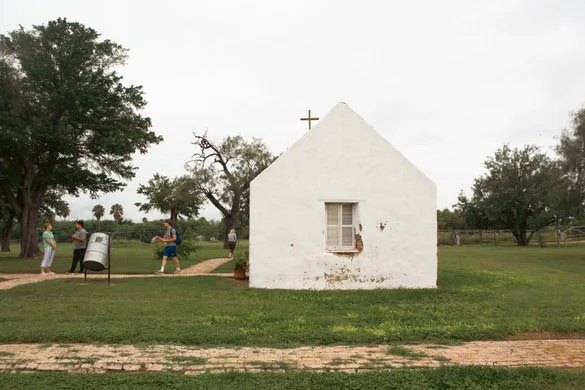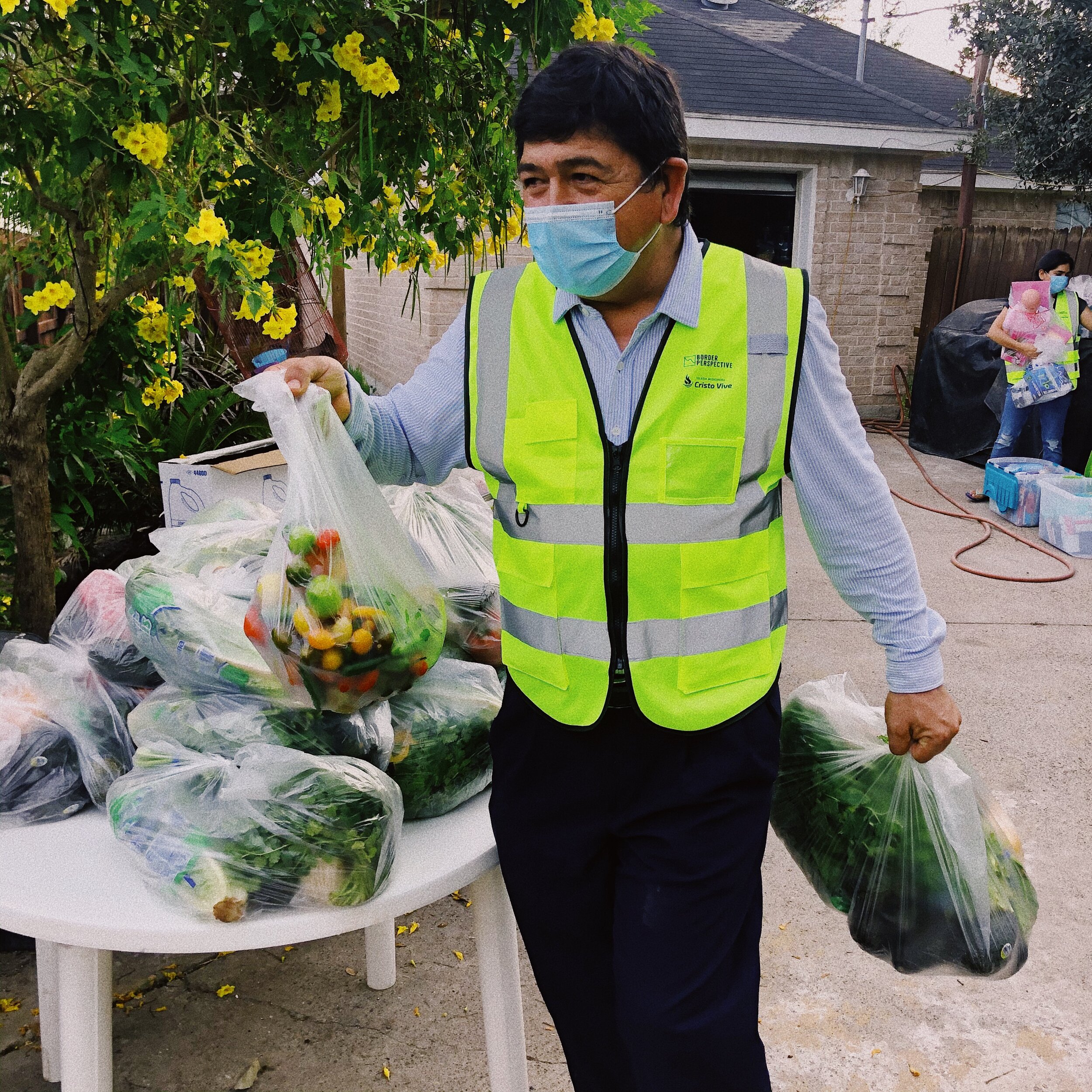What does the Bible say about welcoming the stranger?
As of June 2024, the United Nations High Commissioner for Refugees (UNHCR) reported that approximately 122.6 million people worldwide have been forcibly displaced from their homes. UNHCR
This figure includes 72.1 million internally displaced persons (IDPs) who have been forced to move within their own countries, typically due to conflict, and 32 million refugees under UNHCR's mandate who have sought safety in other countries.UNHCR
Many of these individuals endure challenging living conditions, such as residing in camps with makeshift shelters and limited security. Conversely, some are more successfully integrated into local populations, contributing positively to their host communities.
So, what does the Bible say? What can scripture teach us about how we should respond to the foreigner as followers of Christ.
Addressing the migration crisis—often driven by factors like conflict, persecution, poverty, and climate change—remains a complex and highly political issue in today's society. While it's not possible to extract specific policies from the Bible, there are principles that emerge very clearly.
In the Old Testament, God's people are commanded: 'Don’t mistreat any foreigners who live in your land. Instead, treat them as well as you treat citizens and love them as much as you love yourself. Remember, you were once foreigners in the land of Egypt. I am the Lord your God' (Leviticus 19:33-34).
While the New Testament was written in a different context, it too has advice about hospitality and welcome. 'Be sure to welcome strangers into your home. By doing this, some people have welcomed angels as guests, without even knowing it,' we read in Hebrews 13:2, while 1 Peter 1:17 reminds us that we're all foreigners: 'You say that God is your Father, but God doesn’t have favorites! He judges all people by what they do. So we must honor God while we live as strangers here on earth.'
All these texts indicate that those displaced are to be provided for and welcomed. For Christians, a grudging or discriminatory approach towards the stranger is completely unacceptable.
How would we respond if the displaced on our doorstep was Jesus himself? Matthew 25:31-46, highlights our responsibility to care for the 'stranger' and the displaced around us. 'Whatever you did not do for one of the least of these, you did not do for me,' says Jesus.
The Bible says a lot more about Welcoming the Stranger
Foreigners or refugees are not to be oppressed.
Do not oppress a foreigner; you yourselves know how it feels to be foreigners because you were foreigners in Egypt. Exodus 23:9
Jesus says to show disciple-like behavior in how we treat strangers.
I was hungry and you gave me food, I was thirsty and you gave me drink, I was a stranger and you welcomed me. Matthew 25:35
All believers are strangers on earth.
Since you call on a Father who judges each person's work impartially, live out your time as foreigners here in reverent fear. 1 Peter 1:17
All believers in Jesus Christ belong to the kingdom of God.
Consequently, you are no longer foreigners and strangers, but fellow citizens with God’s people and also members of his household. Ephesians 2:19
Refugees in the Bible
Hagar — Genesis 16:1-15
David — 1 Samuel 23:13-18
Jesus — Matthew 2:13-23
Aquila and Pricilla — Acts 18:1-3; Romans 16:3-5, 1 Corinthians 16:19
OTHER BIBLICAL REFERENCES
Cities of refuge were available to Israelites and foreigners in cases of accidental murder. Numbers 35:15
Deuteronomy 14:28-29 commands God's people to keep a tenth of their harvest every third year for 'orphans, widows, and foreigners': 'If they have enough to eat, then the Lord your God will be pleased and make you successful in everything you do.'
There are also laws about providing for non-Israelites: Leviticus 23:22 says: 'When you harvest your grain, always leave some of it standing around the edges of your fields and don’t pick up what falls on the ground. Leave it for the poor and for those foreigners who live among you. I am the Lord your God!'
And you are to love those who are foreigners, for you yourselves were foreigners in Egypt. Deuteronomy 10:19
“Cursed is anyone who withholds justice from the foreigner, the fatherless or the widow.”
Then all the people shall say, “Amen!” Deuteronomy 27:19
When they were few in number, of little account, and strangers in the land, wandering from nation to nation, from one kingdom to another people, he allowed no one to oppress them; he rebuked kings on their account, saying, ‘Do not touch my anointed ones; do my prophets no harm.’ 1 Chronicles 16:19-22
I was eyes to the blind, and feet to the lame. I was a father to the needy, and I championed the cause of the stranger. I broke the fangs of the unrighteous, and made them drop their prey from their teeth. Job 29:15-17
The Lord watches over the strangers; he upholds the orphan and the widow, but the way of the wicked he brings to ruin. Psalm146:9
If you really change your ways and your actions and deal with each other justly, if you do not oppress the foreigner, the fatherless or the widow and do not shed innocent blood in this place, and if you do not follow other gods to your own harm, then I will let you live in this place, in the land I gave your ancestors for ever and ever. Jeremiah 7:5-7
You are to allot it as an inheritance for yourselves and for the foreigners residing among you and who have children. You are to consider them as native-born Israelites; along with you they are to be allotted an inheritance among the tribes of Israel. Ezekiel 47:22
“This is what the Lord Almighty said: ‘Administer true justice; show mercy and compassion to one another. Do not oppress the widow or the fatherless, the foreigner or the poor. Do not plot evil against each other.’ Zechariah 7:9-10
You shall love the Lord your God with all your heart, and all your soul, and with all your strength, and with all your mind; and your neighbor as yourself. Luke 10:27
Then Peter began to speak: “I now realize how true it is that God does not show favoritism but accepts from every nation the one who fears him and does what is right. Acts 10:34-35
Contribute to the needs of the saints; extend hospitality to strangers. Romans 12:13
Love does no wrong to a neighbor, therefore love is the fulfilling of the law. Romans 13:10
In that renewal there is no longer Greek and Jew, circumcised and uncircumcised, barbarian, Scythian, slave and free; but Christ is all and in all. Colossians 3:11
Border Perspective serves families on the U.S. and Mexico border. We equip leaders, advocate for biblical justice and mobilize the church into action.
































